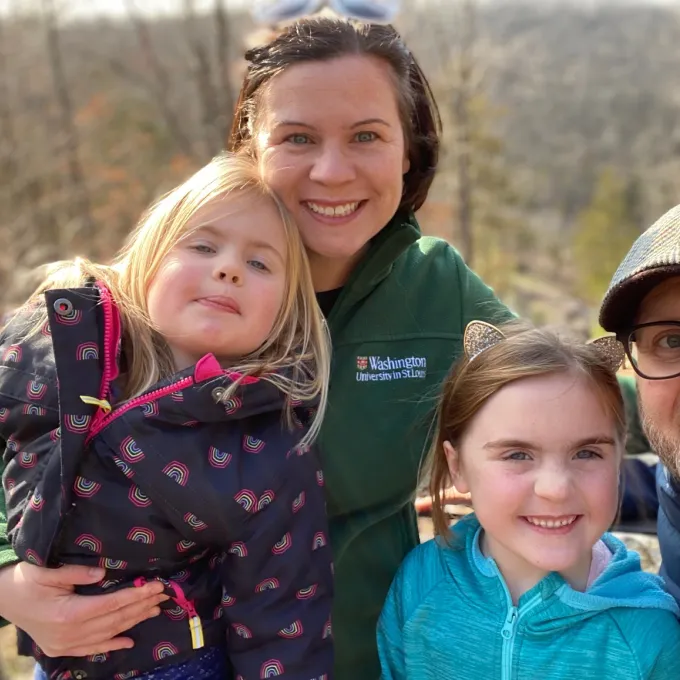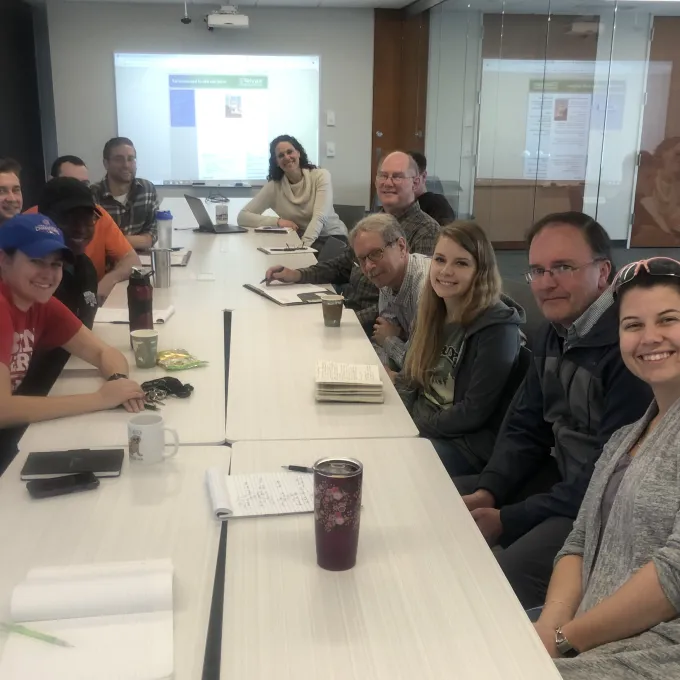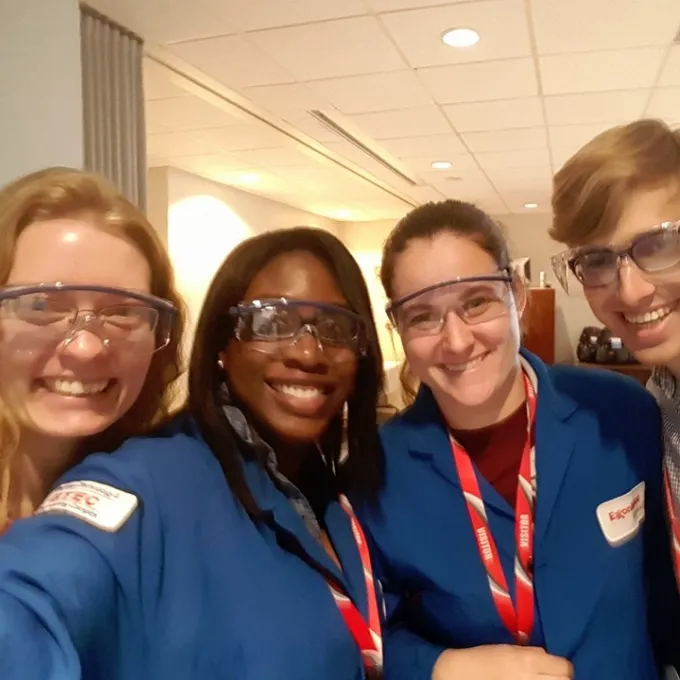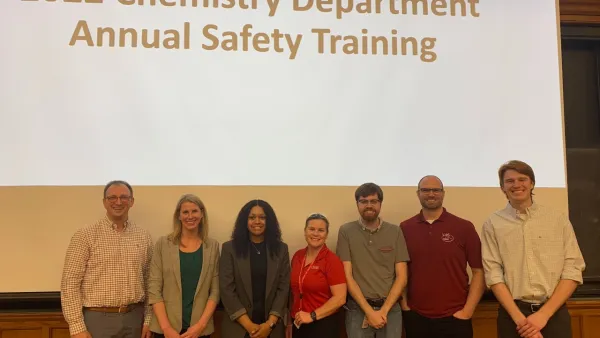Building a Culture of Safety
Above all, the chemistry department at Washington University is committed to providing a safe workspace for all our students, post-docs, staff and faculty. Our department is dedicated to supporting safe practices, managing potential risks and promoting genuine consideration for the safety of oneself and neighbors all while maintaining competitive standards in our instructional and research labs.
Safety is everyone’s responsibility, and our department is steadfast in sustaining our safety culture through inclusion and collaboration. Anyone can get involved in our safety initiatives by joining our Department Safety Committee, sharing safety concerns through our Near-Miss/ Hazard reporting forms or by providing positive feedback about peers through our Safety Stars program. Students can play more active roles by becoming lab safety officers and joining the Peer Safety Group. Our commitment to safety extends beyond our department through our collaborative efforts with campus Environmental Health & Safety to have regular safety inspections and though our industry partner, Exxon Mobil, by participating in their annual Partners in Academic Laboratory Safety (PALS) workshops. Our ultimate goal is simple – “Safety first because injuries last.”
Awards & Notables
Our department has made an investment in fostering and developing a valuable culture of safety and compliance that extends from the students and front-line researchers all the way to the top of the administration. As chair of the National Research Council Committee, Provost Holden Thorp made recommendations to universities to promote a culture of safety in academic chemical research. The department further fosters this culture by requiring all incoming graduate students to attend a semester-long safety course, after which, some students choose to advocate for safety by joining the peer-led safety committee. For this effort in cultivating lab safety both the chemistry department and peer safety group have won numerous awards in the field of safety. One of these awards was given by the Campus Safety, Health, and Environmental Management Association (CSHEMA), which recognized the department with an outstanding program that improves research safety on campus.
WashU Chemistry Peer Safety Committee
The WashU Peer Safety Committee (PSC), run completely by our graduate students, strives to establish a bottom-up safety culture within our department. The PSC undertakes the responsibility of encouraging a positive outlook on safety and creating new ways to make the department safer. To learn more about their initiatives and view their upcoming events, please visit the WashU Peer Safety Committee website.






